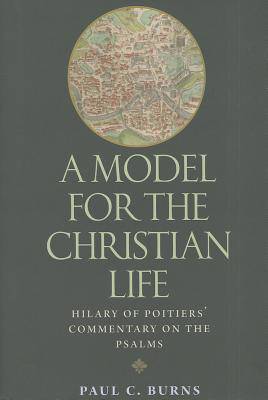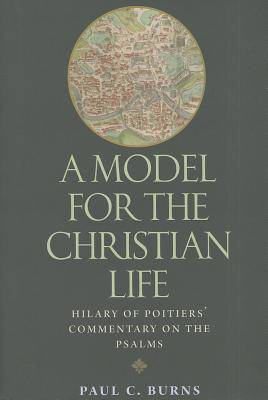
- Afhalen na 1 uur in een winkel met voorraad
- Gratis thuislevering in België vanaf € 30
- Ruim aanbod met 7 miljoen producten
- Afhalen na 1 uur in een winkel met voorraad
- Gratis thuislevering in België vanaf € 30
- Ruim aanbod met 7 miljoen producten
A Model for the Christian Life
Hilary of Poitiers' Commentary on the Psalms
Paul C BurnsOmschrijving
The Psalms, used as hymns for liturgy, have also been read as guidance for the spiritual life. Composed between 364 and 367, Hilary of Poitiers' commentary on the Psalms was the last of his writings before his death. In what appears to be a substantial but conventional commentary, Hilary also employs the Psalms to explore three progressive stages of the Christian life--baptism, resurrection, and transformation--then proposes a complex, integrated model for the Christian life. He makes use of cultural and theological resources acquired throughout his education and from his encounters as a Christian bishop in the mid-fourth century.
In this examination of Hilary's treatise, Paul C. Burns discusses the intended audience of Hilary's text and the use of the Psalms by Christians in the fourth century. He identifies Hilary's distinctive perspectives; his dependence on Origen; his Latin theological and exegetical tradition; and the creative directions of Hilary's thought.
ABOUT THE AUTHOR:
Paul C. Burns is associate professor emeritus of religious studies at the University of British Columbia and lecturer at St. Mark's College and Corpus Christi College. He is the author The Christology of Hilary of Poitiers' Commentary on Matthew and editor of Jesus in Twentieth Century Literature, Art, and Movies.
PRAISE FOR THE BOOK:
"This work offers the most complete examination of Hilary's mature thought in any language. There are books on Hilary's Trinitarian theology, but none that considers the way Hilary conceives the Christian life, nor how he developed theologically and pastorally after his exile. Although scholars have long had a sense that Hilary was important to the course of Latin theology, this book is the first to suggest how and why he was so important. A first-rate work of scholarship."--Mark Weedman, professor of biblical and historical theology, Crossroads College
Specificaties
Betrokkenen
- Auteur(s):
- Uitgeverij:
Inhoud
- Aantal bladzijden:
- 254
- Taal:
- Engels
Eigenschappen
- Productcode (EAN):
- 9780813219875
- Verschijningsdatum:
- 5/09/2012
- Uitvoering:
- Hardcover
- Formaat:
- Ongenaaid / garenloos gebonden
- Afmetingen:
- 160 mm x 234 mm
- Gewicht:
- 566 g

Alleen bij Standaard Boekhandel
Beoordelingen
We publiceren alleen reviews die voldoen aan de voorwaarden voor reviews. Bekijk onze voorwaarden voor reviews.











